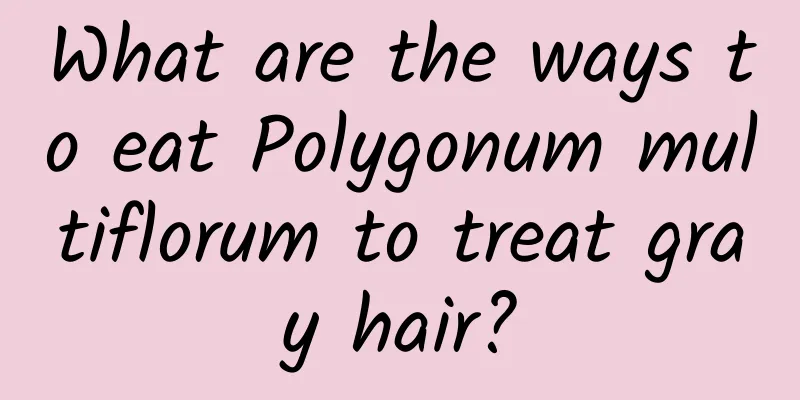The efficacy and function of cockscomb ginseng

|
Many people choose Cockscomb ginseng because of its high-value pharmacological effects, but be careful not to eat it casually, otherwise it will have some bad effects on the body. We need to understand it before eating it. Are you ready? [Other names] Dew grass, chicken heart fritillary, false Cangshan fritillary, hairpin egg fritillary [Source] Medicinal material source: the root or whole herb of blue ear grass of the Commelinaceae family. [Original form] Blue ear grass, a perennial upright or spreading herb, can reach 30cm in height. The plant is often covered with sparse white woolly hairs, or sometimes nearly glabrous. , with many fibrous roots. Leaves are alternate; leaf blades are lanceolate, narrowly oblong or nearly linear, basal leaves are larger and 3 in length. Leaves are alternate; leaf blades are lanceolate, narrowly oblong or nearly linear, basal leaves are larger, 3-8cm long, 5-12mm wide, and stem leaves are smaller, with acuminate or slightly obtuse tips, decurrent bases, and sparsely covered with short cotton hairs on both sides. The cymes are terminal or axillary; the involucral bracts are similar to those of the scutellaria, 2-5cm long; the bracts are sickle-oblong, 5-10mm long, with hairy edges; the sepals are 3, lanceolate, united at the base, about 5mm long, and covered with white wool on the back; the flowers are sky blue, with 3 petals, spoon-shaped and oblong, separated at both ends, fused into a tube in the middle, 5-8mm long; the stamens are 6, fully fertile, and the upper part of the filaments is densely covered with light blue wool; the ovary is oblong, with stiff hairs at the apex, 3-chambered, and the style is linear, about 7mm long, with a slightly swollen apex. The capsule is obovate-triangular, with slender hard hairs at the tip, and 1-2 seeds in each chamber. The surface of the seeds has reticulation and holes. Flowering period is from July to September. [Habitat distribution] Ecological environment: Growing on hillsides, grasslands and sparse woods at an altitude of 1500-2700m. [Chemical composition] The leaves contain commisterone, a stereoisomer of crustecdysone. The leaves and stems contain ecdysterone. [Pharmacological action] Antimutagenic and anti-mutagenic effects. The ecdysterone isolated from the dew leaves can reduce the number of inversion bands induced by two mutagens, sodium nitrite and saline, in the experiment on Salmonella typhimurium TA1535 and TA1537. Crude extracts of the stems and leaves also have antimutagenic effects. 【Nature and flavor】 Bitter; warm 【Functions and indications】Relieve rheumatism; relax muscles and tendons; promote diuresis. Mainly used for rheumatic pain, traumatic injury, edema, otitis media, eczema [Usage and Dosage] For oral use: decocted in water, 9-15g; or soaked in wine. For external use: take appropriate amount and mash it for application. 【Excerpt】 Chinese Materia Medica I believe that the above introduction to the knowledge about cockscomb ginseng will give you a better understanding of it. We can eat cockscomb ginseng in our daily life to regulate and improve our body. |
<<: The efficacy and function of cockscomb
>>: The efficacy and function of egg seven
Recommend
How to make Cuscuta and wolfberry tea
Cuscuta is a common Chinese medicinal material, a...
The efficacy and function of June Green
Chinese medicinal materials are very effective in...
The specific effects of Guanzhong
It is normal that no one knows what Guanzhong is,...
What to do if you have pulmonary fibrosis
Suffering from pulmonary fibrosis, the damage to ...
What are anthocyanins extracted from?
Anthocyanin is a nutrient that has many benefits ...
What is the difference between moxibustion licorice and licorice?
Because Chinese medicine is profound and has a lo...
What are the medicinal values of agarwood?
Kynam agarwood is a kind of fine spice, and Kynam...
How to eat Yangxincao
There are many herbal plants, and we know that he...
Effects and functions of the leaves of Elaeagnus fujianensis
The leaves of Fujian Elaeagnus are rich in nutrit...
The efficacy and function of red flat vine
As the pressure of modern life increases, more an...
What are the effects of the Chinese herbal medicine Astragalus?
Many traditional Chinese medicines have many bene...
Behind the debut of Dinosaur Star, there are 19 fractures
In the Late Jurassic, an Allosaurus limped toward...
On World Malaria Day, let’s review the development process of the antimalarial drug artemisinin
April 25th of each year is World Malaria Day, whi...
The efficacy of red hemp is best at relieving pain and fighting inflammation!
Now it is the beginning of spring again, and cold...









